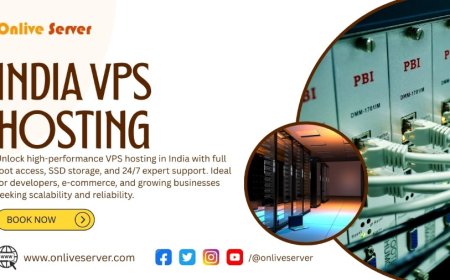How Can Fleet Logistics Support Improve Operations
Fleet Logistics Support plays a vital role in enhancing operational efficiency, cutting costs, and boosting responsiveness across multiple industries.

In todays highly competitive and fast-paced environment, organizations are constantly searching for ways to optimize performance, reduce overhead, and improve service delivery. One often overlooked but incredibly impactful strategy is investing in Fleet Logistics Support. So, how can Fleet Logistics Support improve operations? The answer lies in its ability to provide streamlined coordination, real-time decision-making, and data-driven insights ultimately transforming the entire operational workflow.
Understanding Fleet Logistics Support
Fleet Logistics Support encompasses a comprehensive set of services, technologies, and processes designed to manage, monitor, and maintain vehicle fleets. Whether its for military, industrial, commercial, or transportation sectors, effective logistics support ensures that vehicles, equipment, and personnel operate at maximum efficiency.
This support system is not just about vehicle maintenance. It includes scheduling, dispatching, fuel management, route optimization, compliance tracking, and analytics. When implemented correctly, Fleet Logistics Support becomes the backbone of an organizations field operations.
Key Ways Fleet Logistics Support Improves Operations
1. Enhanced Efficiency through Real-Time Tracking
Modern Fleet Logistics Support systems utilize GPS and telematics technology to provide real-time updates on vehicle location, fuel usage, and driver behavior. With this data, dispatchers and operations managers can make informed decisions instantly, optimizing routes and preventing delays. This minimizes idle time and maximizes output.
2. Reduced Operational Costs
Fuel is one of the highest recurring expenses in fleet management. Fleet support platforms monitor fuel consumption patterns and highlight inefficiencies such as over-idling, harsh braking, or unauthorized usage. Additionally, predictive maintenance alerts prevent costly breakdowns by scheduling repairs before failures occur.
3. Improved Resource Allocation
With better oversight and tracking, organizations can allocate resources where they are most needed. This prevents over-utilization of certain assets while underutilizing others. Fleet managers can ensure all vehicles and drivers are used effectively, reducing the need for excess inventory or personnel.
4. Boosted Safety and Compliance
Fleet logistics systems often come equipped with safety monitoring features. From dash cams to behavior analysis, these tools help identify risky driver behavior and provide training opportunities. Moreover, compliance with government and industry regulations (such as ELD mandates or emissions standards) becomes easier through automated logging and reporting.
5. Data-Driven Decision Making
Data is the new oil, and fleet logistics support systems are rich in it. With access to detailed analytics on performance, efficiency, and cost metrics, organizations can continuously improve operations. Strategic decisions such as whether to replace a vehicle or switch fuel types become much more straightforward when backed by data.
6. Faster Response Times
For industries like emergency services, delivery, and field service operations, speed is everything. Fleet logistics support ensures that the right vehicle is dispatched at the right time using the fastest route. This not only improves customer satisfaction but also provides a competitive edge.
The Role of Technology in Fleet Logistics Support
The evolution of Fleet Logistics Support is closely tied to advancements in technology. Artificial Intelligence (AI), Internet of Things (IoT), cloud computing, and automation have revolutionized how fleets are managed today. AI can predict traffic conditions and suggest alternate routes; IoT sensors can monitor engine health in real time; cloud-based platforms allow for seamless communication between teams across geographies.
These innovations reduce manual effort, improve accuracy, and allow managers to focus on strategic growth rather than routine logistics.
Case Study: Logistics Success in Action
Consider a national courier company that implemented an advanced fleet logistics platform. Within six months, they reported:
-
25% decrease in fuel expenses
-
30% improvement in delivery time
-
20% increase in customer satisfaction scores
-
40% reduction in vehicle downtime
These numbers underscore the transformative power of integrated fleet support in daily operations.
Conclusion: Investing in the Future
To remain competitive and efficient, companies must prioritize operational excellence. Fleet Logistics Support is no longer optionalits a strategic asset. By harnessing data, leveraging technology, and adopting best practices in logistics management, organizations can not only improve current operations but also lay a robust foundation for sustainable growth.


























